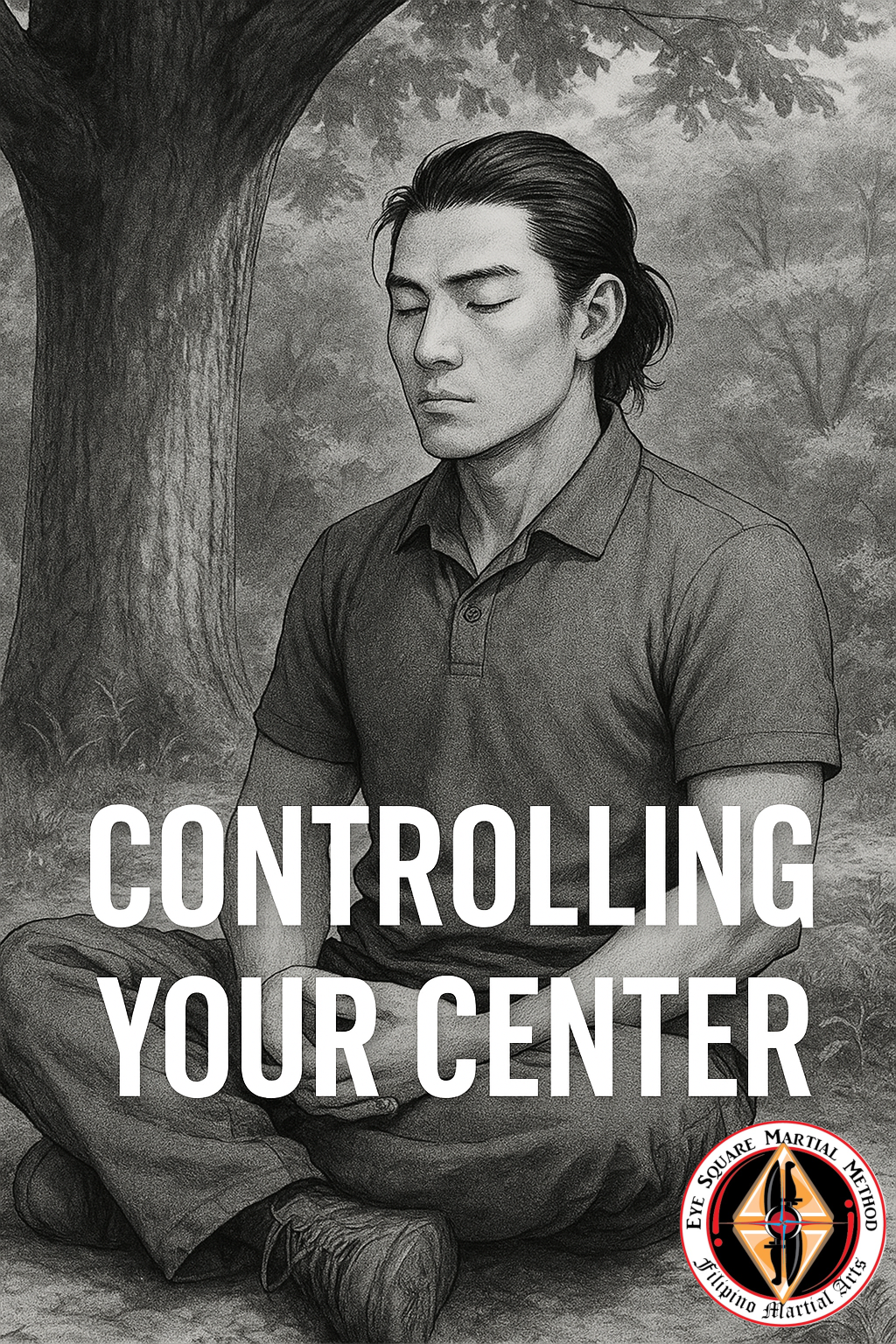Prepared, Not Violent is an ongoing series from Eye Square Martial Arts exploring how martial artists can understand, avoid, and prepare for real-world violence—without becoming consumed by it.
This is Part III: Controlling Your Center
There are certain subjects that tend to get under my skin. Maybe you’ve got a few of your own. I’ve let myself get riled up before—enough that it’s cost me friendships.
One example still stings. A former friend’s girlfriend clearly knew how to press my buttons. She poked at a topic she knew would get a rise out of me. I reacted. She cried to him. He ghosted me for a week, and then told me we couldn’t be friends anymore.
But personal drama aside—there’s a deeper lesson here.
When you allow someone else to trigger your emotions, you’re essentially handing over control. You’re letting them steer the ship.
And that’s never good. At least, not for you.
You Teach People How to Treat You
Every time you react in a certain way, you reinforce the rulebook others use when dealing with you.
If you explode when challenged, people learn to provoke you when they want to win.
If you withdraw when criticized, people learn to guilt you into silence.
If you overextend when praised, people learn to flatter you into compliance.
Most people aren’t evil. But most people are human—and they’ll push for what they want, even when it’s not in your best interest.
“If You’re Feeling, You’re Not Thinking”
Here’s a hard truth: when your emotions take over, your reasoning shuts down. The limbic system—your “monkey brain”—hijacks your frontal cortex. That’s the part responsible for logic and decision-making.
Worse, it doesn’t just override logic—it recruits it. Once your emotions are in the driver’s seat, your brain gets to work justifying your feelings rather than evaluating the situation objectively.
Identity Is the Emotional Trap
This is why topics like politics, religion, and even martial arts can cause otherwise calm people to lose their minds. These things get tied to your identity. And once something becomes part of who you are, any challenge to it feels personal.
Disagree with my stance? You’re attacking me.
Criticize my art? You’re disrespecting my identity.
It doesn’t even have to be serious. Some people will go to war over what car you drive, what coffee you drink, or whether you put pineapple on pizza.
And here’s the kicker: when researchers put people into MRI machines and asked them political or religious questions, the logical parts of the brain didn’t light up. The emotional centers did.
We think we’re being rational, but we’re not.
Keep Your Center
In martial arts, the “center” is your balance point. Lose it, and you’re vulnerable. The same is true emotionally.
If you want to be prepared—not just for violence, but for life—you have to own your center. That means not letting others manipulate your emotional state. It means noticing when your buttons are being pushed, and choosing not to react blindly.
It’s hard. But it’s worth it.
Control yourself—so no one else can.


Leave a Reply